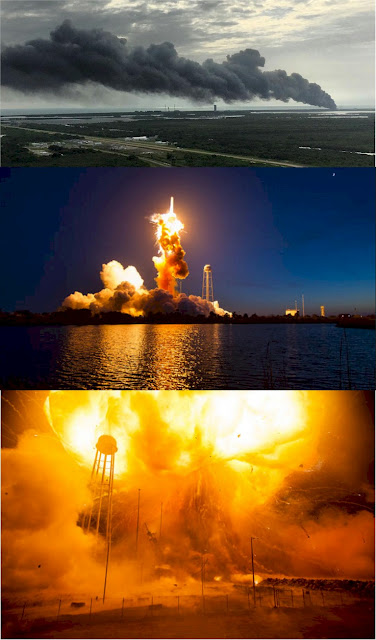Fusion
Laser – Omega - Z Machine – Hadron - SpaceX … All Big Bang, Boom Boom, and Eventual Bust?
National Ignition Facility May Never Ignite, DOE
Admits
arxiv.org › physics
Perimeter Institute Paving the Road Past 2D Short Sighted Boom Boom Vision?
PERIMETER PARTICLE PHYSICIST EARNS
EARLY RESEARCHER AWARD - Arvanitaki, who holds the inaugural Stravros Niarchos Foundation Aristarchus Chair at
Perimeter Institute, is exploring
novel experimental approaches to particle physics that may be done with
small-scale experiments rather than enormous colliders.
============ This blog’s suggestion
==============
There is conclusive evidence that the attraction, called the
binding energy, which exists between the Newtonian particles, (the protons and
the neutrons) is intense almost beyond our ability to describe. This force,
however, does not increase uniformly with increasing mass, but at certain
points not only reaches zero but actually becomes negative.
We can demonstrate
this fact by adding a single unit of Newtonian mass, a neutron, to the nucleus
of an atom of Uranium 235. When this is done, we find that the gravitational
force within the nucleus, instead of increasing actually becomes negative, that
is, the attraction between its parts becomes a repulsion, and the parts begin
to separate with considerable brisance. During the expansion, however, several
new centers of gravity are formed, which, because of the smaller amount of mass
involved in each, are strongly positive. The result is that two or more simpler
atoms are formed, plus a few neutrons which have acquired too great a velocity
to be captured by this regrouping process.
In most text books,
this phenomenon is described as the 'splitting' of the atom. There is an implication that
it is the 'impact', or the kinetic energy of the neutron which causes the atom
to split. If this were true, then obviously, a high speed neutron would split
the atom more easily and surely than one with much lower speed. Actually, the
opposite situation is true. The high speed neutron will not split the uranium
atom at all. It must be slowed to thermal velocity so that it can settle into
the nucleus before fission occurs.
Occasionally a
neutron will be captured by a uranium atom, without falling directly into the
nucleus. The neutron may orbit the nucleus for a very long time (as time is counted
in nuclear physics), perhaps several seconds or even minutes. Eventually the
neutron drops into the nucleus, and 'delayed fission' occurs, again
demonstrating the fact that it is not the impact of the neutron, but its
presence in the nucleus, which results in its expansion.
The expansion and
subsequent condensation into several simpler atoms is a completely random
process. Many simpler types of atom can, and do result from the
condensation, in each case however, the smaller atoms cannot contain as many
neutrons in proportion to the number of protons as the larger atom, so there
are always several neutrons left over.
This phenomenon, if
carefully examined and considered, will furnish several strong clues to the
nature of gravity itself, but let us for the moment, content ourselves with the
observation that it demonstrates that a gravitational field can, under certain
conditions, become negative.
In the meantime, the University
of Rochester’s Omega laser and Sandia
National Laboratories’ Z machine—both also supported by the NNSA’s inertial confinement fusion
program—continue research on alternative approaches to ignition. Omega, a glass
laser like NIF, uses direct drive, which brings beams to impinge directly on
targets; Z uses electromagnetic fields to produce implosions.
Answers reside in a 3D
version (analogy) of the current 'flat' concept of E=mc2, along with much
needed, integrated, refined, and redefined views of space time mass matter
energy gravity. Any questions the reader may have on this subject can only be intelligently discussed when the following 4th
grade level concepts pertaining to "the radius of curvature of all natural law' are read, and light,
the C in mc2 is recognized as this radius - a concept understood in the distant past and symbolized, staring us in the
face for thousands of years, in the sine wave of the Yin Yang.

FOR A FASTER MERGER PACE OF PAST AND PRESENT - Here is How
A more refined view of E=MC2 discloses Light (C) as The Radius of Curvature of All Natural Law, equating to the kinetic energy equivalent of the mass energy of matter
meaning if a differential of energy equal to this quantity exists between the observer and the point which he is observing, the natural laws will be suspended. If the energy differential is in excess of the quantity C, the laws will appear to operate in reverse at that point.
 The far more fundamental and simpler definitions of space time mass matter energy gravity become mandatory:
The far more fundamental and simpler definitions of space time mass matter energy gravity become mandatory:- The Quantity C: Possessing a Significance Far Greater than Attributed
- Gravity – As Viewed Through the Radius (VC)
- Space as Observed through the Curve of Radius Light
- Matter and Mass – Quantum Gravity and the Holographic Mass
- Beyond A Uni-Dimensional Perception of TIME
- The Nonlinearity of Physical Law
- Definition








No comments:
Post a Comment